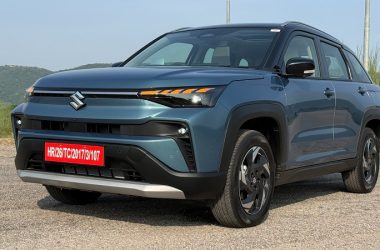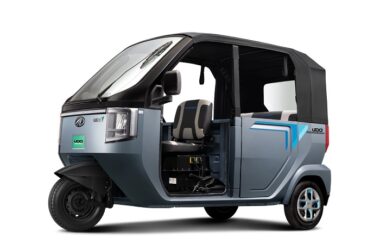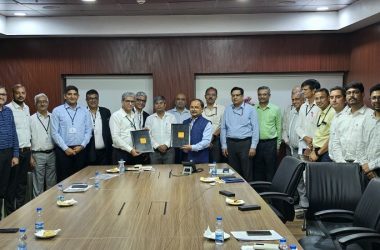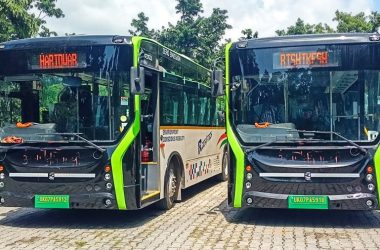New Delhi, August 2024 — The Ministry of Heavy Industries (MHI) hosted a forward-looking webinar at Udyog Bhawan, New Delhi, underscoring India’s commitment to transforming its electric vehicle (EV) landscape and enhancing domestic manufacturing capabilities. The event, themed “E-Mobility, Capital Goods, and the Way Forward,” featured key addresses from Union Minister H.D. Kumaraswamy and Minister of State Bhupathiraju Srinivasa Varma, alongside participation from senior government officials and industry leaders.
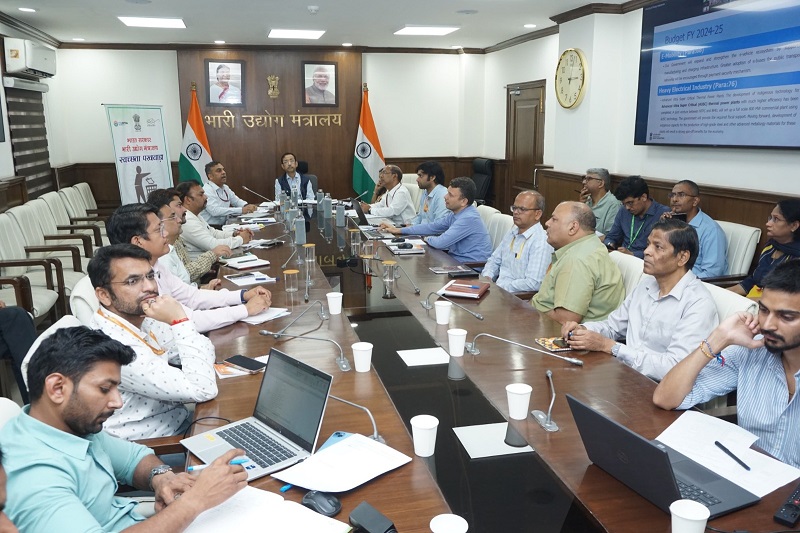
Union Minister H.D. Kumaraswamy, in his keynote speech, articulated the ministry’s strategic focus, drawing from Prime Minister Narendra Modi’s vision for a ‘Viksit Bharat 2047’ and the nation’s net-zero goal by 2070. “Our mission is clear,” Kumaraswamy asserted. “Through initiatives like the Production Linked Incentive (PLI) Scheme, FAME, and advanced capital goods programs, we are driving the growth of India’s EV ecosystem, fostering local manufacturing, and paving the way for sustainable development.”
Minister of State Bhupathiraju Srinivasa Varma highlighted the critical role of the automotive sector in India’s economic aspirations. “Under the visionary leadership of Prime Minister Narendra Modi, India is poised to achieve a $5 trillion economy, with the automotive industry at the forefront. The Ministry of Heavy Industries is committed to innovation and self-reliance, ensuring a prosperous future for the nation through schemes like PLI for Automobiles and Auto Components,” Varma noted.
The webinar delved into the Union Budget 2024-25, focusing on bolstering the electric vehicle ecosystem, including manufacturing and charging infrastructure. Participants also discussed the expansion of e-buses in public transport through innovative payment security mechanisms.
A notable highlight was the announcement of indigenous technology completion for Advanced Ultra Super Critical (AUSC) thermal power plants. This breakthrough promises significant efficiency gains, with a joint venture between NTPC and BHEL set to establish an 800 MW commercial plant, supported by government funding.
Key initiatives presented during the webinar included:
- PLI AUTO Scheme: With an outlay of ₹25,938 crore, this scheme aims to boost domestic manufacturing and promote localization in the auto sector.
- PLI ACC Scheme: Approved with an outlay of ₹18,100 crore for 50 GWh, this initiative focuses on enhancing India’s ACC manufacturing capabilities.
- EMPS Scheme: Aimed at supporting EV manufacturing, particularly for two-wheelers and three-wheelers, with an outlay of ₹778 crore.
- SMEC Initiative: Designed to attract global EV investments with a minimum commitment of ₹4,150 crore.
- Capital Goods Scheme: With a combined outlay of ₹2,203 crore, this scheme is set to stimulate investment, strengthen technological capabilities, and bolster domestic manufacturing.
The webinar saw participation from key industry stakeholders, including NITI Aayog Adviser Sudhendu J. Sinha, officials from the Ministries of Housing and Urban Affairs, and New and Renewable Energy, as well as representatives from major automotive and energy companies like Maruti, Mahindra, Tata Motors, and Reliance Jio BP.
As India strides towards a more sustainable and self-reliant future, the Ministry of Heavy Industries remains at the forefront, driving innovation and progress in the nation’s e-mobility and capital goods sectors.


